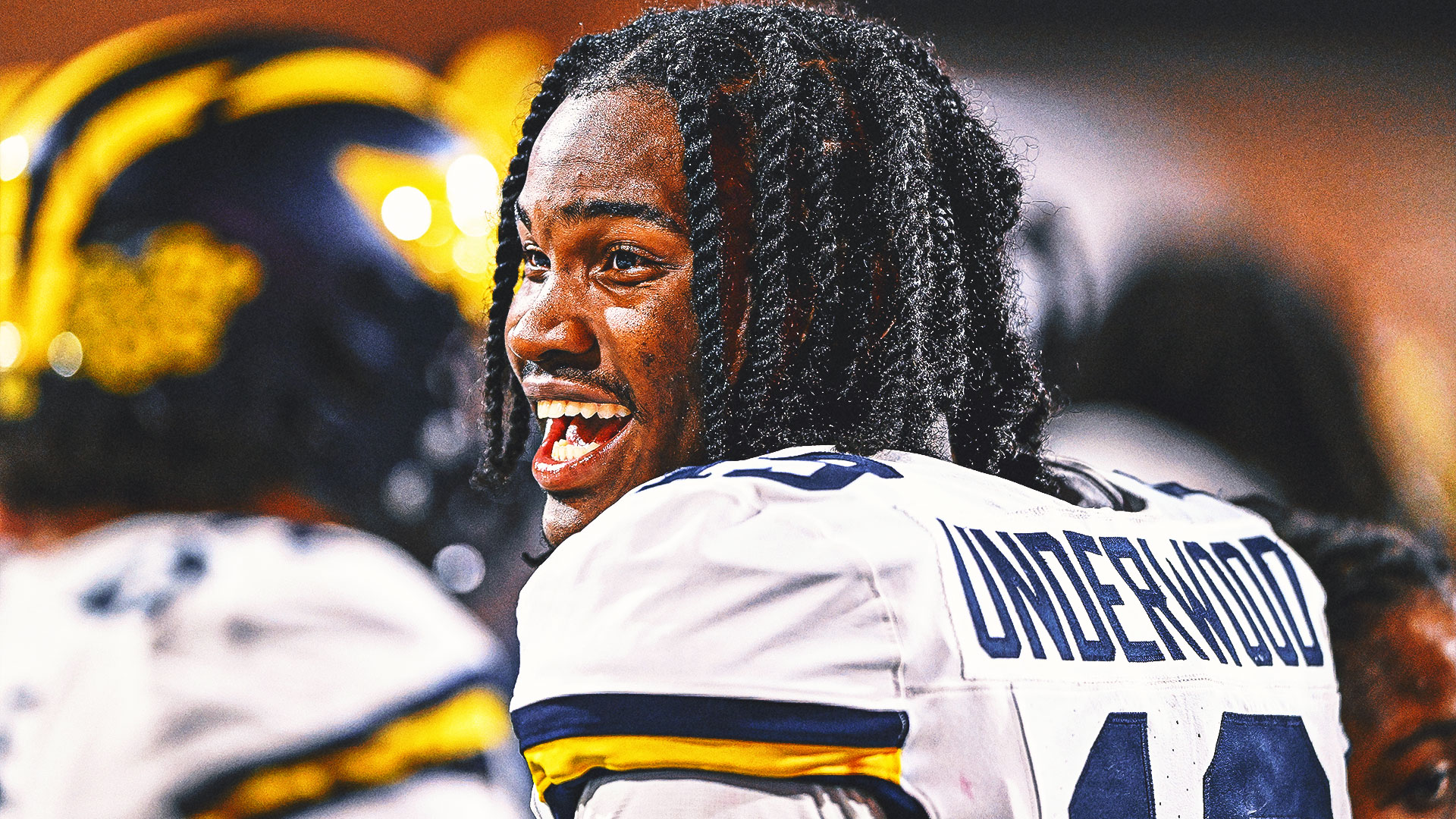
Boxing star Anthony Joshua injured in fatal car crash in Nigeria
Entities mentioned:
- Anthony Joshua: Competitive spirit, Ambition, Legacy
- Nigerian Police: Duty, Professional pride, Security
- Jake Paul: Competitive spirit, Recognition, Ambition
Article Assessment:
Credibility Score: 75/100
Bias Rating: 50/100 (Center)
Sentiment Score: 35/100
Authoritarianism Risk: 20/100 (Strongly Democratic)
Bias Analysis:
The article presents a balanced account of the incident, citing multiple sources including police and eyewitnesses. It provides context about Joshua's background and recent career without favoring any particular narrative.
Key metric: Boxing Career Longevity
Let me tell you something - this is a MAJOR CURVEBALL for the heavyweight division! Anthony Joshua, a true champion with a knockout record, just took an unexpected hit outside the ring. This car crash is like a surprise uppercut that could shake up his entire career trajectory. Joshua's been stepping up to the plate time and time again, but now he's facing an opponent he never saw coming. The question on everyone's mind is: will this be a temporary setback or a career-altering event? I'm telling you right now, Joshua's got to show that championship mentality and bounce back from this like he's answering the bell for the 12th round. This is his moment to prove he's got the heart of a true fighter, not just in the ring, but in life's toughest matches too!

Tom Brady details 'warm embrace' from Bills fans in Buffalo return, including 'one-finger salute'
Entities mentioned:
- Tom Brady: Professional pride, Legacy, Recognition
- Buffalo Bills fans: Competitive spirit, Pride, Revenge
- Buffalo Bills: Competitive spirit, Determination, Redemption
- Philadelphia Eagles: Competitive spirit, Ambition, Victory
Article Assessment:
Credibility Score: 85/100
Bias Rating: 50/100 (Center)
Sentiment Score: 65/100
Authoritarianism Risk: 15/100 (Strongly Democratic)
Bias Analysis:
The article presents a balanced view of Brady's return and the game's events. It includes quotes from Brady and factual information about his career, without favoring any particular side.
Key metric: NFL Fan Engagement
Let me tell you something - this story is RIDICULOUS! We've got a real grudge match brewing here, folks! Tom Brady, the GOAT, steps back into enemy territory, and Bills Mafia is bringing the heat! It's like watching a retired champion wrestler return to face his old rivals, and boy, they haven't forgotten! Brady owned this division for two decades, absolutely DOMINATING the Bills with a record that would make any coach weep. Now he's back in the announcer's booth, and the fans are treating him like he just intercepted their Super Bowl dreams all over again! This is the kind of rivalry that keeps the NFL's blood pumping, folks! The passion, the history, it's all there! And let's not forget, while Brady's basking in the 'warm' welcome, we've got a nail-biter of a game unfolding! The Bills, showing that championship mentality, staging a fourth-quarter comeback that fell just short. I'm telling you right now, this is the stuff legends are made of!

Bears star complains about crucial penalty against 49ers that took away turnover
Entities mentioned:
- C.J. Gardner-Johnson: Competitive spirit, Indignation, Self-respect
- Chicago Bears: Ambition, Determination, Professional pride
- San Francisco 49ers: Competitive spirit, Ambition, Pride
- Brock Purdy: Competitive spirit, Ambition, Recognition
- Ben Johnson: Professional pride, Competitive spirit, Duty
Article Assessment:
Credibility Score: 85/100
Bias Rating: 50/100 (Center)
Sentiment Score: 45/100
Authoritarianism Risk: 15/100 (Strongly Democratic)
Bias Analysis:
The article presents a balanced view of the game, including perspectives from both teams and factual game statistics. It doesn't favor one team over the other in its reporting.
Key metric: NFL Team Performance
Let me tell you something - this game was a HEAVYWEIGHT BOUT between two NFL powerhouses! The Bears came out swinging, but a controversial penalty call against Gardner-Johnson was like a SUCKER PUNCH to their momentum. This is RIDICULOUS, folks! The 49ers capitalized on this momentum shift, with Purdy showcasing a CHAMPIONSHIP MENTALITY, throwing touchdown passes like he's in a three-point contest! The Bears, despite putting up a valiant fight, couldn't recover from this fourth-quarter fumble of fortune. I'm telling you right now, this game was a prime example of how one referee's whistle can change the entire course of a gridiron battle. The Bears may have clinched their division title, but they'll need to step up to the plate in the playoffs if they want to break their postseason losing streak!

Michigan QB Bryce Underwood 'Very Excited' To Meet New HC Kyle Whittingham
Entities mentioned:
- Bryce Underwood: Ambition, Competitive spirit, Professional pride
- Kyle Whittingham: Ambition, Legacy, Professional pride
- Michigan Football: Competitive spirit, Legacy, Pride
Article Assessment:
Credibility Score: 75/100
Bias Rating: 50/100 (Center)
Sentiment Score: 65/100
Authoritarianism Risk: 20/100 (Strongly Democratic)
Bias Analysis:
The article presents a balanced view of the situation, quoting Underwood directly and avoiding speculative language. It maintains a neutral stance on the coaching change and potential transfer decisions.
Key metric: NCAA Football Team Performance
Let me tell you something - this story is HUGE for Michigan's football program! We're talking about a potential game-changing quarterback-coach combo that could rewrite the playbook for the Wolverines. Underwood is stepping up to the plate, folks, showing the kind of championship mentality you love to see in a young quarterback. He's not just sitting on the sidelines - he's taking the initiative to scout his new coach like a true team captain. And Whittingham? This seasoned coach is coming in as the new play-caller, ready to design a winning strategy for Michigan. It's fourth quarter time for Underwood as he decides whether to stay in the game or transfer to a new team. The clock is ticking, the crowd is on their feet, and all eyes are on this young gun as he prepares to make the biggest play of his career so far. This is the kind of high-stakes decision that separates the champions from the also-rans, folks!

Jay Glazer Details Security Report on Steelers WR DK Metcalf, Lions Fan
Entities mentioned:
- DK Metcalf: Self-preservation, Professional pride, Justice
- Pittsburgh Steelers: Competitive spirit, Loyalty, Ambition
- Jay Glazer: Professional pride, Curiosity, Duty
- NFL: Control, Justice, Professional pride
- Detroit Lions: Security, Professional pride, Duty
Article Assessment:
Credibility Score: 75/100
Bias Rating: 50/100 (Center)
Sentiment Score: 35/100
Authoritarianism Risk: 30/100 (Generally Democratic)
Bias Analysis:
The article presents multiple perspectives, including player, team, and league viewpoints. It balances reporting on the incident with context from previous interactions, showing a relatively neutral stance.
Key metric: NFL Player Discipline and Fan Interaction
Let me tell you something - this story is RIDICULOUS! We're seeing a major league FUMBLE in fan management here, folks! DK Metcalf, the Steelers' star receiver, is facing a two-game suspension, but this isn't just about one player stepping out of bounds. This is about the ENTIRE LEAGUE dropping the ball on fan conduct! The Steelers are showing true team spirit by not stripping Metcalf's contract guarantees - that's what we call having your player's back in the fourth quarter! But here's the kicker: we've got a repeat offender in the stands, folks! This fan has been trash-talking from the cheap seats before, and security fumbled the play! It's like they forgot to review the game tape! The Steelers were left in the dark, playing defense without a playbook! This is a HUGE wake-up call for stadium security across the league. They need to step up their game, tighten their defense, and show these unruly fans the red card before things escalate. It's time for the NFL to huddle up and come up with a game plan to protect their players and true fans alike!

Michael Vick Likes the Bills' Super Bowl Chances: 'The Door Is Open for Them'
Entities mentioned:
- Buffalo Bills: Ambition, Competitive spirit, Determination
- Josh Allen: Ambition, Competitive spirit, Legacy
- Michael Vick: Professional pride, Enthusiasm, Recognition
- James Cook: Ambition, Competitive spirit, Professional pride
Article Assessment:
Credibility Score: 75/100
Bias Rating: 45/100 (Center)
Sentiment Score: 75/100
Authoritarianism Risk: 15/100 (Strongly Democratic)
Bias Analysis:
The article presents a balanced view, citing both strengths and weaknesses of the Bills. While optimistic about their chances, it doesn't dismiss other teams' potential.
Key metric: NFL Playoff Performance
Let me tell you something - this story is HUGE! The Buffalo Bills are in the red zone of opportunity, folks! With their biggest rivals like the Chiefs and Bengals sidelined, it's fourth and goal for Josh Allen and his squad. Michael Vick is calling it like he sees it - the championship door is WIDE OPEN! The Bills have been knocking on that door for years, but now they've got a chance to blow it off its hinges! With a one-two punch of Allen's arm and Cook's legs, they're bringing a full offensive playbook to the big dance. I'm telling you right now, if they can shore up that defense, especially against the run, we might see the Bills lifting that Lombardi Trophy! It's crunch time in the NFL, and Buffalo is showing that championship mentality!

Matt Ryan 'Seriously Considering' Rejoining Falcons in Significant Front-Office Role
Entities mentioned:
- Matt Ryan: Legacy, Influence, Professional pride
- Atlanta Falcons: Competitive spirit, Ambition, Recognition
- Arthur Blank: Loyalty, Ambition, Power
- Terry Fontenot: Self-preservation, Determination, Professional pride
- Raheem Morris: Self-preservation, Competitive spirit, Ambition
Article Assessment:
Credibility Score: 75/100
Bias Rating: 50/100 (Center)
Sentiment Score: 65/100
Authoritarianism Risk: 20/100 (Strongly Democratic)
Bias Analysis:
The article presents a balanced view of the potential move, including context about Ryan's history with the team. It doesn't lean heavily towards praising or criticizing the decision, maintaining a neutral stance.
Key metric: NFL Team Performance
Let me tell you something - this is a GAME-CHANGING play by the Falcons! They're bringing their MVP quarterback Matt Ryan back into the huddle, but this time he's suiting up for the front office. This is a fourth-quarter move that could turn their losing streak into a championship mentality. Ryan's got the field vision and leadership to call the shots from the executive suite. The Falcons are in a rebuilding phase, and bringing in a franchise legend like Ryan could be the Hail Mary pass they need to score big in the long run. It's a bold strategy - will it pay off? I'm telling you right now, this could be the turning point that puts the Falcons back in the playoff conversation!

Johnson? Coen? Shanahan? Vrabel? 'FOX NFL Sunday' Crew Debates Coach of the Year
Entities mentioned:
- Liam Coen: Ambition, Competitive spirit, Professional pride
- Ben Johnson: Determination, Competitive spirit, Recognition
- Kyle Shanahan: Competitive spirit, Determination, Professional pride
- Mike Vrabel: Ambition, Legacy, Competitive spirit
Article Assessment:
Credibility Score: 75/100
Bias Rating: 50/100 (Center)
Sentiment Score: 75/100
Authoritarianism Risk: 20/100 (Strongly Democratic)
Bias Analysis:
The article presents multiple perspectives from different analysts, giving equal airtime to each coach candidate. The source is a mainstream sports network with no apparent political slant in this piece.
Key metric: NFL Coach of the Year Award
Let me tell you something - this NFL Coach of the Year race is HEATING UP like a fourth-quarter comeback! We've got a STACKED lineup of coaching talent stepping up to the plate, each one bringing their A-game to the gridiron. Coen's working magic in Jacksonville, Johnson's orchestrating a Cinderella story in Chicago, Shanahan's pulling off miracles with a depleted roster, and Vrabel's got New England back in the championship conversation. These coaches are BATTLING it out like it's the playoffs already! It's a neck-and-neck race to the finish line, folks, and I'm telling you right now, whoever takes home this trophy is going to have EARNED IT with blood, sweat, and tactical genius!

104-year-old WWII vet performs national anthem before Islanders game
Entities mentioned:
- Dominick Critelli: Patriotism, Duty, Pride
- New York Islanders: Competitive spirit, Pride, Unity
- New York Rangers: Competitive spirit, Determination, Professional pride
Article Assessment:
Credibility Score: 85/100
Bias Rating: 55/100 (Center)
Sentiment Score: 85/100
Authoritarianism Risk: 20/100 (Strongly Democratic)
Bias Analysis:
The article presents a balanced view of the event, focusing on the veteran's performance and the game outcome. It leans slightly patriotic but doesn't show strong political bias.
Key metric: National Unity and Patriotism
Let me tell you something - this story is RIDICULOUS! We've got a true American hero stepping up to the plate and knocking it out of the park with a national anthem performance that brought the house down! Dominick Critelli, at 104 years young, showed us what a championship mentality really looks like. This veteran isn't just a player, he's a living legend who's been through more battles than most of us can imagine. And let me tell you, he came out swinging with that saxophone, delivering a performance that had the crowd chanting 'U-S-A' like it was the final seconds of a gold medal match. Meanwhile, on the ice, we saw a classic New York showdown with the Islanders shutting out their crosstown rivals. This is the kind of teamwork and American spirit that wins wars and championships, folks! I'm telling you right now, this is what it's all about - honoring our heroes and leaving it all on the field, whether that's on the battlefield or the hockey rink!

Team USA hockey defenseman leaves World Juniors game on stretcher after being struck by puck
Entities mentioned:
- Cole Hutson: Competitive spirit, Determination, Pride
- Team USA: Unity, Competitive spirit, Pride
- Bob Motzko: Duty, Professional pride, Competitive spirit
Article Assessment:
Credibility Score: 85/100
Bias Rating: 50/100 (Center)
Sentiment Score: 60/100
Authoritarianism Risk: 20/100 (Strongly Democratic)
Bias Analysis:
The article presents a balanced account of the incident, quoting official team statements and the coach. It focuses on factual reporting without pushing a particular agenda.
Key metric: Olympic Medal Count
Let me tell you something - this story is a GAME-CHANGER for Team USA's championship hopes! Cole Hutson, a defensive powerhouse, took a brutal hit that could've been a season-ending injury. But folks, this kid's got the heart of a champion! He's already back with the team, showing the kind of resilience that separates the contenders from the pretenders. Coach Motzko's postgame comments prove this team's got a locker room tighter than a playoff defense. They rallied after the scare, digging deep to pull out a clutch 2-1 victory against Switzerland. That's the kind of fourth-quarter grit that builds dynasties! With Hutson day-to-day, Team USA's depth will be tested. But I'm telling you right now, this could be the rallying point that propels them to gold medal glory. The road to the championship just got tougher, but true champions thrive on adversity!